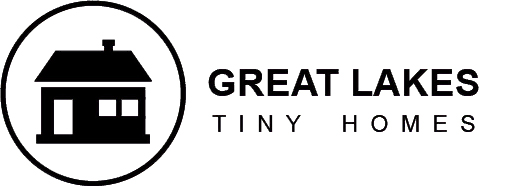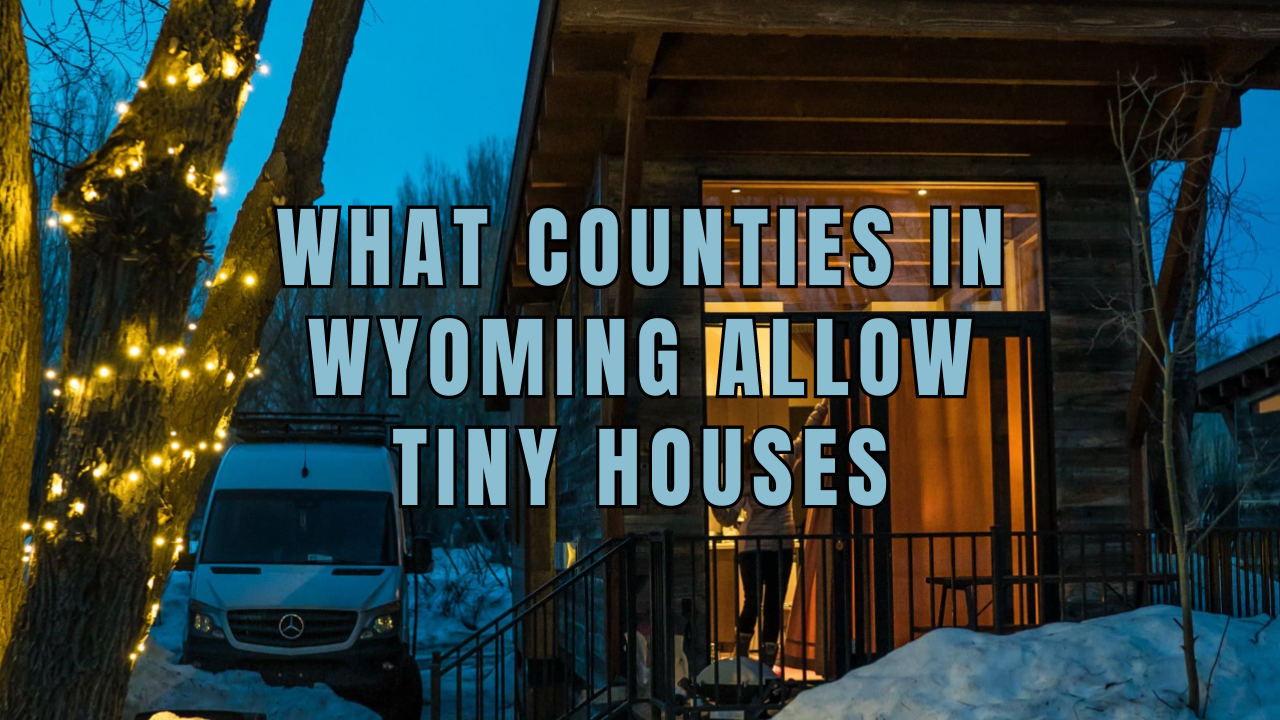Due to their economical manner of living, tiny homes have gained popularity as a lifestyle option. Furthermore, because of the popularity of tiny houses in Arizona, some counties have passed laws to support this housing movement.
In this post, we will give an overview of the Arizona counties that permit tiny homes, buy tiny homes near me, and discover the rules governing them.
Tiny House Prices in Arizona
You may be thinking about affordable solutions that match your tiny living aspirations and your budget now that you have embarked on your tiny house project. The average price for a tiny house in Arizona is between $15,000.00 – $90,000.00.
Here is an option for every living style and budget to help you move one step closer to your living project. Check out tiny houses for sale in Arizona.
What Counties in Arizona Allow Tiny Houses?
Pima County and Coconino County are acknowledged as Arizona’s two main tiny-house-friendly counties. Certain counties have enacted laws that are more tolerant of homes.

Pima County
Regulations in Pima County, which allow tiny homes of any size on permanent foundations in zones for single-family residences, demonstrate the county’s proactive embrace of the tiny house movement. Regarding tiny houses on wheels, zoning regulations are more stringent.
Coconino County
Sedona and the surrounding area of Coconino County are well-known as excellent places to live in compact houses. Coconino County in Arizona has specific zoning and building regulations for tiny houses. These regulations include minimum lot sizes, setbacks, and foundation requirements for tiny houses. Understand these laws before building or purchasing a tiny house in the county to ensure compliance with local ordinances.
Mohave County
For those homes outside of Lake Havasu municipal, Bullhead City, and Kingman municipal borders, a proposed measure would do away with the requirement for building licenses for tiny house lovers in Mohave County.
Tiny House Rules And Regulations In Arizona
In Arizona, a home less than 400 square feet is known as a tiny house. Mobile dwellings, which have a minimum floor area of 160 square feet, are what tiny houses on wheels fall under, according to Appendix Q. Zoning laws in Arizona are rather lax; small homes are permitted in auxiliary dwelling units (ADU), detached single-family, and multifamily zones.
Permanent Structure Rules
The Grand Canyon, the Colorado River, and the state’s varied desert fauna have made it a well-liked vacation spot for small home lovers.
Compared to small mobile houses, permanent tiny homes are compact, solid constructions with superior underfloor insulation.
Some of the most relevant requirements to consider are:
- Ceiling heights must be at least 60 amperes for electrical circuit panels and 6’4″ overall.
- Tiny permanent dwellings need to comply with plumbing and ventilation rules, including one bedroom, and have an emergency escape on the top.
- Loft-style tiny homes must have a minimum floor space of 35 square feet. The lofts need to have three-foot-high and five-foot-wide horizontal ceilings.
Temporary Structure Rules
A construction permit and an authorized trailer are prerequisites for establishing a THOW. Before you can move into your tiny home on wheels after construction is complete, it has to be inspected.
A tiny house on wheels has to have a minimum space of 160 square feet. Although it may seem strange, tiny houses on wheels constructions are on authorized foundation sites, such as mobile home pier-jack foundations. The state views tiny homes with travel vehicle licenses as nonpermanent dwellings.
Transitional Structure Rules
Just as tiny permanent dwellings have regulations and building codes, so do tiny transitional constructions. However, homeowners are required by law to remove any components that might allow them to move, such as wheels and axles.
Transitional structures are tiny houses that are on skids. Large tracks called skids run beneath the base of buildings. They are not well known. A transitional structure may be moved by homeowners using a trailer, but this is an expensive and infrequent process.
In Arizona Where Can I Build A Tiny House?
There are a lot of places in Arizona where you can build a home. They can be seated in many kinds of zones, such as:
- Zones for multifamily housing
- Single-family detached zones
- Zones for accessory housing units
A tiny house on wheels can park in areas designated for mobile homes or recreational vehicles. It implies that you can park an RV or mobile home at a state park, which is abundant in Arizona.
Tiny Home Communities in Arizona
Tiny home communities in Arizona are becoming increasingly popular as the state becomes more tiny house-friendly. Many communities now allow for the construction and living of tiny homes, and some offer a certificate of occupancy for those who wish to live in a tiny house. It has led to a growing movement of people embracing a minimalist and sustainable lifestyle through tiny homes.
Tiny Camp Sedona
Tiny Camp, located in picturesque Sedona, Arizona, is one of the tiny home communities offering luxurious cabin rentals. This small home community offers yoga, wine tasting, and wildlife exploration excursions.
LuxTiny Community
LuxTiny, located in Lakeside, Arizona’s western region, provides inexpensive small houses for mountain life. Perfect for communal living, the small house community in Arizona has solar panels, hens, and a greenhouse. The tiny house community experience includes vacation rentals and cottages as well.

Tiny House Builders Near Me
Great Lakes Tiny Homes offers multiple tiny house designs with nationwide delivery, eliminating the need to scout for local builders to find your dream home.
Furthermore, Great Lakes Tiny Homes is an RV Industry Association (RVIA) builder. Passionate about the highest production standards and rigorous compliance with the building, safety, and regulatory rules for tiny homes.
Do I Need a Certified Builder?
Yes, you do. You could consider the do-it-yourself approach, but the risks are higher, and the results are uncertain.
Working with an RVIA-certified builder, like Great Lakes Tiny Homes, assures you will own a tiny house manufactured according to rules and regulations.
Furthermore, it offers peace of mind because it ensures the materials on your residence are safe, durable, and top quality.
Working with a registered builder also offers easier access to insurance coverage and financing choices. Compliance with RVIA standards certifies your tiny house is a safe and habitable environment.
FAQs
Can You Make a Tiny House in Arizona Your Main Residence?
Yes, you can make a tiny house your permanent residence in Arizona.
However, be mindful of the local rules and regulations. The best practice is to check with your local authorities and zoning officials to discover if your tiny house adheres to building codes for permanent tiny, including inspections.
Do your homework and work with certified builders to enjoy the perks of a simpler, more sustainable lifestyle in Arizona.
Does My Tiny Houses Need to Pay Property Taxes?
No, tiny dwellings are not subject to the property taxes imposed on larger residences. In some states, a tiny home on wheels is considered a recreational vehicle (RV). Consequently, the property can be subject to the same personal property taxes paid on mobile homes.
Real estate tax is still due, though, whether your little transitional or permanent house is on land you own.
In Arizona, Is It Legal to Build a Tiny House in Your Backyard?
In Arizona, purchasing or building a tiny home on wheels requires obtaining building permission and an authorized trailer.
An accessory dwelling unit (ADU), is an additional housing unit on the same land as a principal residence; some circumstances include tiny houses. Local zoning laws and construction requirements can differ depending on the area and apply to ADUs.
Conclusion
Arizona has a very lax attitude toward tiny homes, with some counties—like Pima and Coconino—setting the standard for these structures. The state offers a range of zoning alternatives to accommodate THOWs and permanent tiny properties.
The general tendency in Arizona is to embrace the tiny home movement, with an emphasis on community development and diversity in housing alternatives, even if county-by-county rules may vary.





